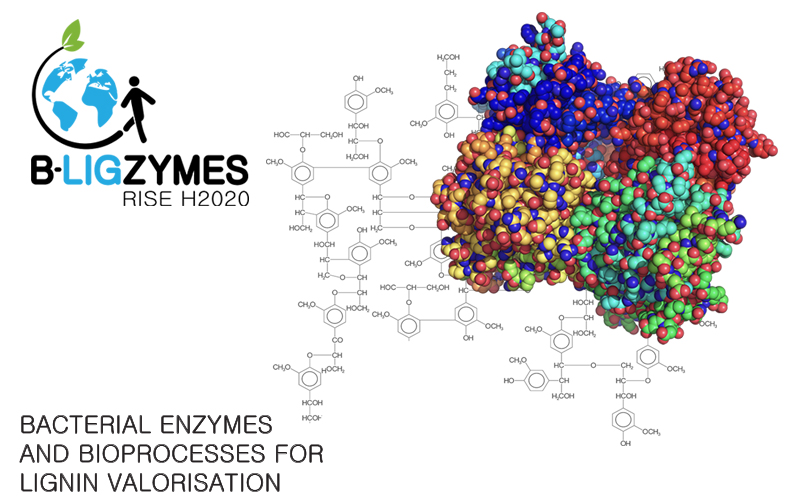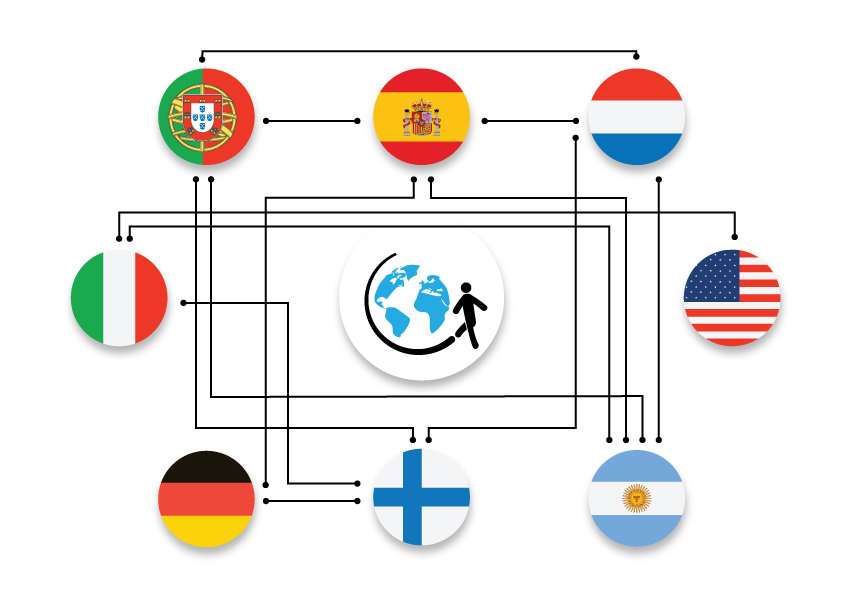Project

B-LigZymes is an international, interdisciplinary, and intersectoral H2020 RISE project that directly addresses current limitations in lignin degradation by generating technological and economical solutions inspired by fundamental research. B-LigZymes provide a holistic view of the development of biocatalytic processes involved in the valorization of lignin.
B-LigZymes aims at:
(i) Identify and isolate new bacterial ligninolytic enzymes
(ii) Improve the performance and robustness of enzymes, relying on iterative experimental and computational protein engineering tools
(iii) Advance the understanding of ligninolytic enzymes at a molecular level, which will guide further optimization of biocatalytic systems
(iv) Set up enzymatic processes for lignin depolymerization and fractionation that lead to producing chemicals and polymers from renewable resources.
Lignin is the most abundant aromatic polymer on Earth and is an essential source of bulk and fine chemicals, plastics, polymers, surfactants, and adhesives, among others. Enzymatic depolymerization of lignin into phenolic platform chemicals is a potential environmentally friendly breakthrough application for the successful valorization of lignin bio-wastes. At the same time, it offers a variety of benefits, such as cleaner reactions with lower energy requirements. Bacterial systems are mainly unexplored but may provide a rich source of new ligninolytic and auxiliary enzymes, given the breadth of bacterial enzymes and pathways that functionalize or degrade aromatics. Moreover, they hold a high potential considering the ease of gene cloning, protein production, and many molecular tools available for enzyme engineering. Generating tailor-made enzymes represents a proficient way to design highly efficient and stable biocatalysts required for handling harsh industrial-process conditions.
The B-LigZymes program foster collaborations across sectors, disciplines, and countries and a shared culture of research & innovation (R&I) that welcomes and rewards creativity and entrepreneurship.
The proposed networking activities (secondments, wide-network meetings, workshops) will allow researchers to develop new R&I and transferable skills to boost future career opportunities, strengthening the organizations and Europe's human capital, competitiveness, and growth.
B-LIgzymes contribute to a knowledge-based economy and society by the common objectives and impact of the Marie Sklodowska-Curie Actions (MSCA) Research and Innovation Staff Exchange (RISE)'s call.





